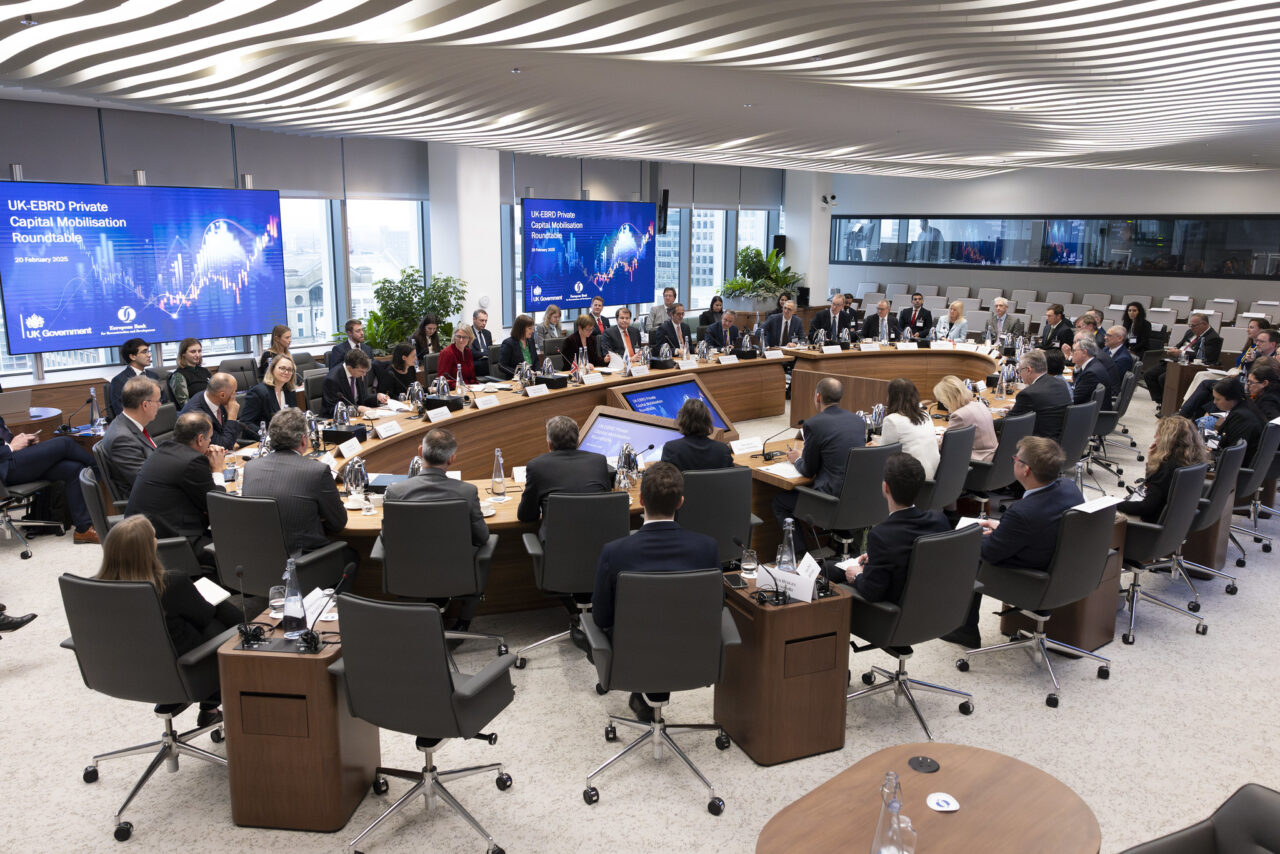The initiative seeks to tap City of London expertise to develop ways to increase sustainable sovereign debt financing in emerging markets.

An initiative has been launched by UK chancellor Rachel Reeves at a roundtable of finance leaders in London that seeks to add momentum to government efforts to mobilise more private sector investment in emerging markets.
The London Coalition on Sustainable Sovereign Debt will bring together government, development finance institutions (DFIs) and the private sector to find innovative solutions to boost sustainable sovereign debt financing in developing economies. The coalition will be co-chaired by City minister Emma Reynolds.
At the 20 February roundtable at the headquarters of the European Bank for Reconstruction and Development (EBRD) in London, Reeves and co-host Odile Renaud-Basso, the EBRD’s president, conferred with business leaders on how to improve private capital mobilisation. Attendees included executives from a number of City of London institutions, including Aviva, HSBC and Schroders.
The hope is that, by promoting orderly and transparent debt restructuring and more resilient borrowing, the initiative will generate more funding for emerging economies to direct towards their climate and development targets.
Reeves told the meeting that the UK’s financial centre could help countries unlock new opportunities for British companies to create wealth and drive growth.
“Business and government must work together to seize opportunities in emerging markets and kickstart economic growth,” Reeves said.
The coalition’s ambition of using the pooled expertise of London-based financial services firms to boost the City’s role as a development finance hub builds on recent calls for London-based private institutions to direct more funds and know-how towards impact investing in the UK and abroad.
The UK has been reorienting its overseas development initiatives over recent years to focus on leveraging private investment, as well as direct government aid, via DFI British International Investment and UK-backed programmes such as MOBILIST and the Private Infrastructure Development Group.
MOBILIST recently received a fresh funding commitment of up to £100m (€120m) for its programme to facilitate equity listings in emerging markets. In 2024, Impact Investor looked at MOBILIST’s work in South Africa and elsewhere in Africa.
The government is also pushing through reforms to the UK pensions system, which it believes could unlock around £80 billion in productive investment at home. UK pension funds already say they plan to direct more funds towards impact investments.
Blended finance focus
The United Nations estimates there is a $4trn (€3.8trn) annual shortfall in funding required to achieve its Sustainable Development Goals by 2030 – a gap which has been widening due in part to the impact of the Covid pandemic and global economic upheavals.
Baroness Shriti Vadera, chair of insurer Prudential and co-chair of the World Bank Private Sector Investment Lab, told the London meeting that collaboration between governments, international financial institutions, and the private sector was critical if financing levels were to narrow that gap.
“I particularly welcome the focus today on practical steps to develop and deploy risk-sharing and blended financial instruments,” she said.
The meeting also served as a curtain raiser to the EBRD’s annual meeting, to be held 13-15 May in London – the first time the meeting has been held in London since 2016.
Reeves also plans to attend that meeting, at which governors are expected to approve the bank’s next five-year strategy and highlight opportunities for UK businesses to work with the EBRD in markets such as Ukraine, Poland and Turkey.
The EBRD invests in 36 countries in central, eastern and southern Europe, central Asia and North Africa. This year it will also begin operations in up to six sub-Saharan Africa countries. Governors have already approved membership applications for the six: Benin, Côte d’Ivoire, Ghana, Kenya, Nigeria and Senegal.





